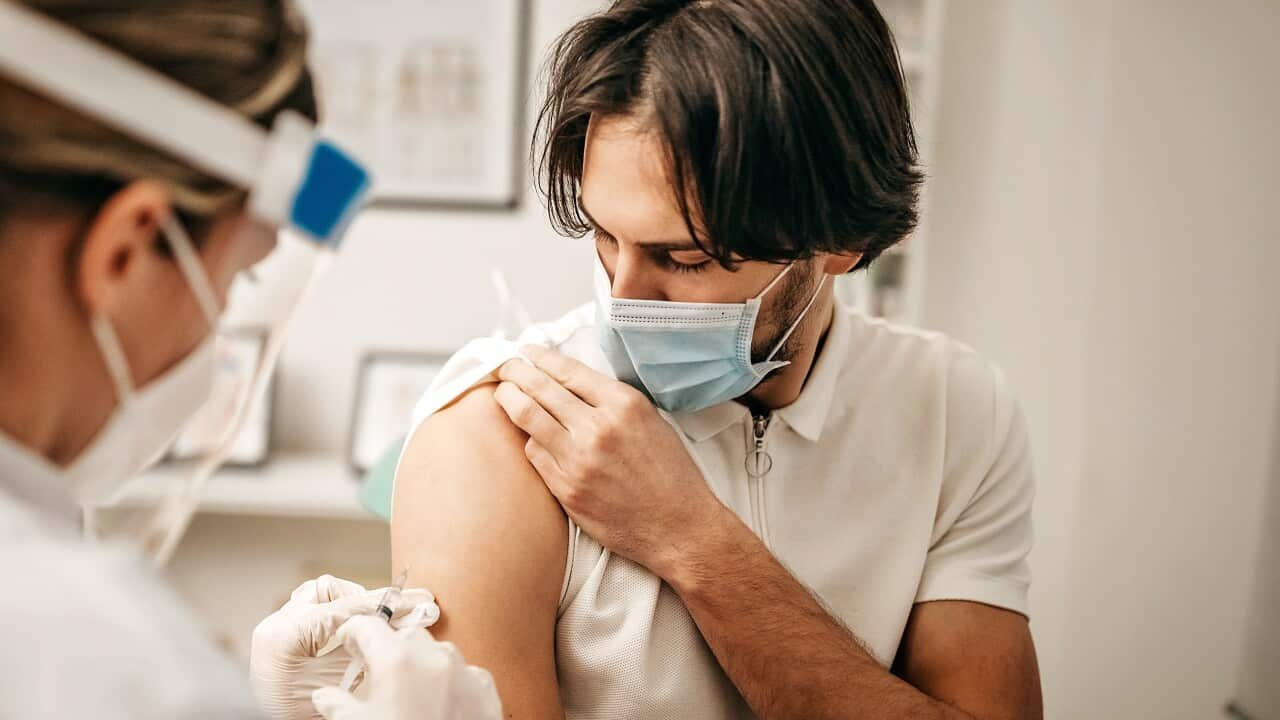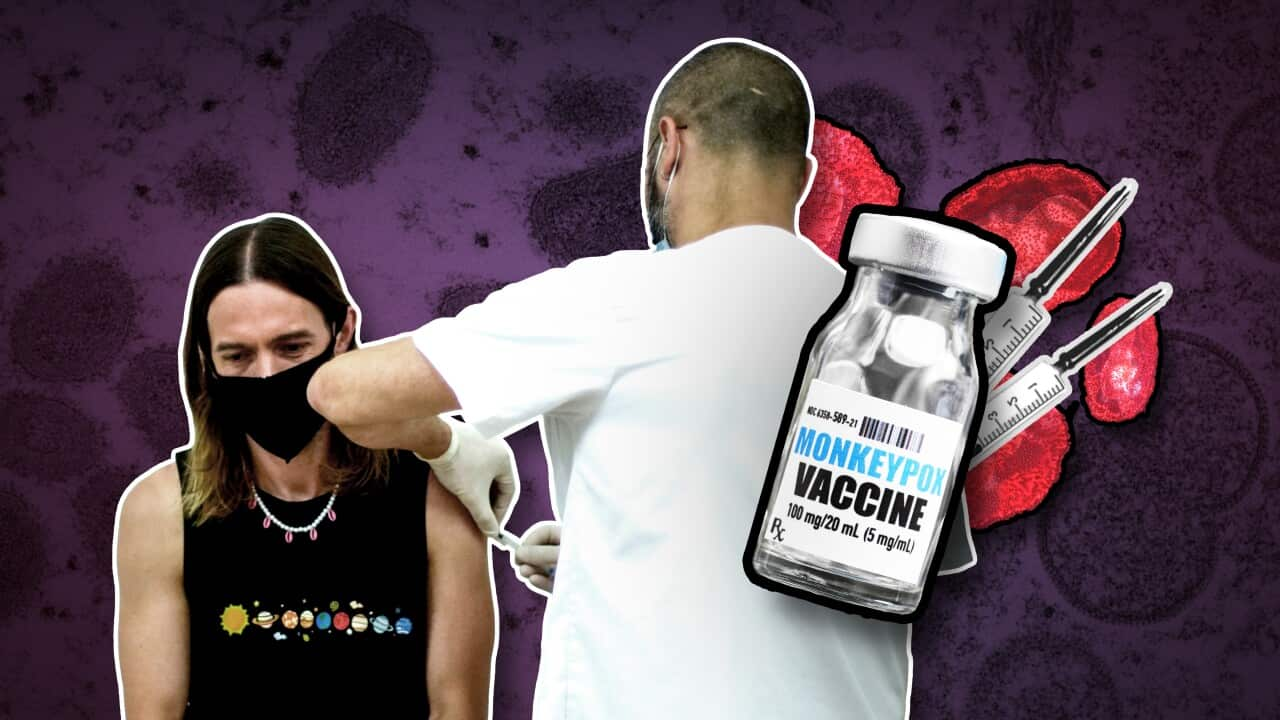Key Points
- More than 400,000 monkeypox jabs have been ordered by the federal government in a bid to contain the outbreak.
- Health Minister Mark Butler has announced the government signed an agreement with Bavarian Nordic to secure the doses.
Jack Barlow has vowed to spend 21 days in isolation after testing positive for monkeypox, to spark a national conversation about the virus that he believes hasn't been tackled quickly enough in Australia.
The 26-year-old Australian man contracted monkeypox during his travels in the United States, likely through a sexual encounter with another man.
"I got to witness firsthand the chaos that is kind of unfolding over there [in the US] with monkeypox, especially in communities like the LGBTIQ+ community," he told SBS News.
Mr Barlow said he came home "to a bit of shock" that the outbreak wasn't being discussed widely in Australia, so has decided to do something about it.

Jack Barlow wants to spark a national conversation about monkeypox. Source: Instagram / Jack Barlow
His comments come as the federal government confirmed its order of more than 400,000 monkeypox vaccines in a bid to contain the outbreak.
While happy about the government securing monkeypox vaccines, he said he was concerned that Australia "potentially could be running out of luck" if the country's health authorities don't catch up to international conversations about the virus.
There are 53 probable and confirmed monkeypox cases recorded in Australia, but more than 26,000 cases have been reported around the world.
Health Minister Mark Butler announced on Thursday the government had signed an agreement with Bavarian Nordic to secure 450,000 doses, with 22,000 due to arrive in Australia as soon as this week.

Minister for Health Mark Butler announced the confirmation of monkeypox vaccines. Source: AAP / Mick Tsikas
The remainder of the doses will arrive later this year and into 2023.
The vaccine is a new generation of immunisation, compared to the smallpox jab which is also used to protect against monkeypox.
Mr Butler said the vaccine can be used to prevent the transmission of the monkeypox virus, but also as a post-exposure treatment.
"This vaccine is far more effective and certainly more user-friendly for patients which may have compromised immunity," he said.
He said Australia was one of only a few countries to secure supplies of the vaccine.
Professor Kelly said monkeypox can adversely affect immunocompromised people, children, and pregnant women.
"If it gets into those populations, it can be quite severe," he said.
"That's why we're taking the steps we're taking and the vaccines will really help with that."
But as Mr Barlow plans out the rest of his isolation period - 21 days for those with monkeypox - he expected the government was going to "jump in with a response" sooner.
"It looks like we're two months behind the northern hemisphere and we potentially could be running out of luck, so it's good that that announcement's made," he said.
"We need to secure a greater supply and continuous supply and a very rapid vaccine rollout to ensure that this remains, as it stands in Australia, a disease mostly in return travellers."
While he only has five poxes so far and deems his case to be mild, he wants to spread awareness about the virus to prevent more people in Australia from being infected.
"While I may be lucky and mild, I wouldn't want anybody to have to experience the worst that this disease has to offer."
When asked if the number of cases was expected to increase in Australia, Professor Kelly said health authorities have been preparing for the virus since May.
"All the work done since May ... and the added benefit of the vaccine will continue to help us to control the epidemic here in Australia and I'm very confident that will happen.
Mr Butler said the vaccine would mostly be available through state and territory sexual health clinics.
The government will also roll out training for clinicians and a community engagement program.
With AAP











